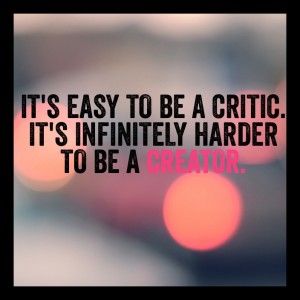We’ve all heard of the fear of failure. Most of us experience this often, and it manifests in many ways: fear of rejection, fear of not making the cut, fear of not living up to our full potential, fear of exposing our flaws, being ridiculed, etc.
The fear of failure can keep us paralyzed in inaction. Scared to take risks, scared to put ourselves out there and scared of those who will challenge us. We get this.
But what about the fear of success?
This might seem counterintuitive. Like, why would someone fear something that has the potential to make them happy? Why would someone be scared of something they say they want?
This can manifest in many ways—and often this is subconscious by the way—fear of *finally* getting lean and healthy. Fear of leaving a relationship that we know is not serving us. Fear of being happy. Fear of leaving what we know. Our comfort zone.
Positive psychologist Tal Ben-Shahar says that there are 3 main components of perfectionism: fear of failure, rejection of painful emotions and rejection of success. A perfectionist will not act if they are not assured of a perfect outcome. No kinks, no challenges and smooth sailing. I’m sure you can guess how often that happens :) But holding onto a perfectionist attitude makes us inflexible, easily discouraged, forever-dissatisfied and ultimately paralyzed.
Though a fear of success is understandable, it’s also not serving you. If you say you want to be happy, make your dreams a reality, finally get lean and healthy or make any other change to your life, getting over yourself is paramount–said with much love and understanding, as always :)
Here are 5 reasons you fear success:
1) You’re scared of any change.
You’ve heard of choosing “the devil you know over the devil you don’t?” The unknown is scary. This is why we see so many people staying in unhappy relationships, collecting paychecks in jobs they hate, or just doing what feels comfy and safe.
Also, as humans, we feel the fear of loss more acutely than we do the potential for gain. In other words, the promise of a new reality is less picture-able than losing our current reality. Our status quo is what we are used to, even if that status is one of failure or settling or not reaching our full potential. Continuing to choose our typical M.O. is also effortless. No growing pains, no expectations, no discomfort. All of that is actually fine (no judgment) … unlesssssss you are miserable or want more, which many do.
But the gap between wanting something and taking action to make it happen is enormous.
2) You can’t play the victim anymore.
A friend of mine texted me the other day after we had been going back and forth about some struggles she was dealing with, and she wrote, “I realized I am addicted to pain.”
Holy shit. How courageous do you have to be to admit that?? In other words, she realized that the miserable situations she found herself in were a result of her own need to be a victim. Those painful situations were serving her in some way.
It’s the easiest thing in the world to play the victim card—we get to gather pity, stay scared, play small and hold onto our insecurities. But with success comes ownership, doesn’t it? The more success we experience, the less able we are to complain and blame, because what’s there to complain about? Who’s to blame?
I know this sounds counterintuitive, but playing the victim feels good. On some level, we crave it. We like to be the one done wrong. We like to be the one who is struggling. It’s a form of attention, isn’t it? It’s martyrdom. It’s a crutch. It’s a distraction from the real issue, which is out ability (or inability) to take control of our own outcomes.
When we play the victim, we don’t need to worry about creating our life because others do that for us—life happens “to us.” We get to be innocent bystanders, casualties of others’ ill will and disregard. The only problem with deferring to others is that we don’t ever have a say in where we’re going or what we’re doing. Talk about powerless! Helplessness is a choice! Aaaaaah! Yes, it is.
And those who are successful rarely ever complain and blame. They take 100% responsibility, even when it’s scary, and they own their power. The gladly let the victim role go.
3) It means more responsibilities.
P. Diddy (or whatever he’s calling himself now) had something right when he said, “mo’ money, mo’ problems.” Only in this case, it’s mo’ success, mo’ problems. Or, at least more responsibilities. The bigger you get, the further there is to fall, right?
Once we achieve the certain level of success, there’s a pressure to continue to be successful—or at least maintain that level of success. Having success establishes a new “normal” where expectations (both self-imposed and from the outside) are higher. We are now “high performers” working consistently at a higher level. Aaaaaaaah, the stress!! Mess-ups are bigger and more visible! People expect stuff from us! We’re role models!
This is all true. But the biggest question to ask yourself is, “Isn’t that what I want?”
THIS IS A SELF-CONFIDENCE ISSUE: If I am scared that people are going to expect things from me or more people are going to be listening to what I’m saying, then on some level, I don’t believe I have anything of value to add.
On the other hand, if I see success as a platform with which I get that many more people exposed to a message I feel so freaking passionate about, then how is that a bad thing? I wake up every morning so fired up about my message, that I feel like I am DOING PEOPLE A DISSERVICE by not getting it out there! How selfish of me to hold myself back? Ha!
What do you think? Am I am egomaniac? :) But the alternative is never feeling like I have anything to offer and continuing to play at a small level, where my message gets contained and no one hears it. In my opinion, that’s way, waaaaaay worse. Because people need this shit.
4) More people will see “the real you.”
Exposure is scary! Because … what will they say? Will the judge me? Will they call me out? Tell me I’m a fraud? Challenge me? Hate on me?
In short: yep, they will. But that’s not the issue. THE WAY YOU HANDLE IT IS.
More success means more attention and more eyes on us, and that’s not comfy at first. Your friends and family don’t know what you’re doing or why you would take risks like that. People in the online space want to critique and assert themselves. There’s more potential for judgment and ridicule. And how do you handle that?
This is one of my go-to articles on how to handle nay-sayers (and I also wrote my own version here). But for me, my tool of choice is transparency—if I say it about myself first, then it lessens the impact of others. When I call myself out on my BS and admit that I, too, struggle, then what’s the worst thing someone can say? I’VE ALREADY SAID IT MYSELF. The only difference between you and someone hating on you is that you are putting it out there.
It’s easy to be a critic. It’s infinitely harder to be a creator.
5) You think you don’t deserve it.
This has to do with feeling like an impostor. We are scared that we are going to get found out. That if we have too much success, we’ll be exposed for the fraud we are. And by the way, who are we to think we can do this? Who are we to give advice? Who are we to start a business? Who are we to want more? Besides, we are just little ol’ us.
We don’t think we deserve success because we have an underlying feeling of insecurity and not being good enough. We’d gladly defer to others who are experts. “So-and-so is doing it so much better than me, why bother!” Or we don’t recognize how much of an expert we actually already are, because we are too busy gathering up enough credentials, certifications and experience to prove it—to ourselves most of all!
If you can’t get your own self-confidence on board in terms of your abilities, then you will never feel “ready” to be successful. But that’s the whole point. NO ONE EVER FEELS READY ENOUGH. And almost no one knows what they’re doing. But the ones who break through and seem to have both success AND confidence are the ones who simply took action. Action breeds confidence, and confidence breeds competency. It’s a feed-forward cycle.

So, what are the solutions? In summary, my top tools:
1) Build your resiliency (which you only do by trying and then failing, BTW!).
Resiliency is how you convince yourself to know that you can handle anything. The more times you fail and get up and try again, the more confidence you build and the more eventual wins you round up. Becoming resilient allows you to become successful, with a built-in safety net at the same time. Because the more resilient a person you are, the less scary success seems because you know that if that success vanishes, you can handle it and you can try again.
How to build resiliency? Take action. Jump. Figure it out along the way, and learn self-trust as you go.
2) Take 100% responsibility. For everything.
People who can handle success (and failure for that matter, since they are two sides of the same coin) are the ones who trust themselves fully. They don’t wait on other people to change or be different or take ownership because they know that those distractions are just a crutch. Your life, in this moment, is the culmination of all the choices you’ve made (consciously or not) up until this point. Your current situation is what is. You can own that (because who else will??) or you can kick and scream and play the victim, essentially nailing your own coffin.
When you take responsibility for your words, your actions—and even other people’s words and actions that affect you!—there is always a move to make, an action to take, an opportunity for ownership. So, the bottom line, stop complaining and blaming. And when you do, you come fully into your power. And who could NOT be successful when they see all the angles and feel empowered?
3) Be transparent and don’t pretend to have all the answers.
You’re human. Show people that. When you expose yourself first, the worst thing someone can say about you you’ve probably already called yourself (doesn’t mean it’s true, necessarily), but I find that transparency dissipates antagonism.
On the other hand, when you pretend you know it all, that’s the precise moment when someone’s going to swoop in and pull a status play because they want to bring you down a notch. Own your expertise, but also let them see you sweat. Doing both doesn’t make you less credible. In fact, it makes you more credible than ever because now you’re also relatable.
What do you gals think? Head over to the JillFit Facebook page and give me your $0.02. I’d love to hear where you are with all of this! Much love, Jill xo
Some tweetables for you:

